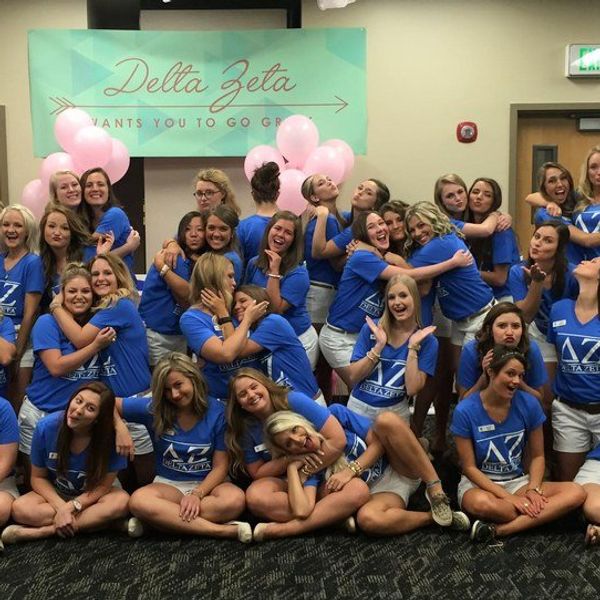Greek life, one of the most controversial topics when it comes to discussing college. It is something you either love or you hate - usually those who love it are in or have been in it.
Trust me, I am not blind to all the negative stories that have been in the media in recent years about Greek life, but that doesn't mean every single person in an organization is like that. As someone who is a proud member of a Greek organization, I am tired of being asked why I paid for my friends and how many nights a week I stayed out and drank. Believe it or not, Greek life is more than what you hear in the news.
1. We raise millions for charity
According to the University of Northern Iowa, Greek organizations give an average of $7 million to charity and spend over 800,000 hours toward charitable services. There are even volunteer Greek organizations who are dedicated solely to volunteer work in their local communities. Different colleges and universities have unique guidelines for Greek members, but not require a certain amount of hours a semester each member has to spend doing charitable work.
2. The friendships we make are real
Despite what a lot of people want to say, we did not pay for our friends. Yes, we pay dues every semester to go toward things such as social events, campus programs, and apparel, but we did not give a chapter money just so we could be invited to join. In fact, most potential new members (PNMs) either join with a friend or already have friends in the organization that wanted them to join. You are around these people so often from the very beginning that the bond you form with some are so strong and they become your support system. So yes, we pay money towards programs, yes we did join an organization that introduces us to many people, but the 2 are not correlated.
3. Not everyone hazes
Hazing in Greek organizations seem to be the majority of stories written about Greek life. While yes, there are organizations who take it to the extreme, but they do not represent everyone.
One of the most common questions people ask Greek members are, "Did they haze you?" Believe it or not, a lot of people will answer that question with an answer that shocks people - "no." Universities and the Nationals Board of organizationshave strict "no hazing" policies which can even lead to expulsion if not followed. We hear horror stories about insane hazing pledges went through, but most other Greek members do not have an experience even close to that. Many organizations do not want to take the chance of facing expulsion so they follow the policies.
Hazing is one of the worst stereotypes when it comes to Greek life. I know in my personal experience, I was not hazed during my pledge process. I find it extremely disheartening when people are so completely shocked when I tell them that I did not go through the horror everyone thinks all pledges do.
4. We don't all party every night instead of study
Greek members are required by the university and/or nationals to have a certain GPA. Even potential new members are required to meet a certain GPA to even be allowed to join. If the member does not meet that GPA requirement, they could face being removed from the organization and if the entire organization does not meet an average of the required GPA, some universities even suspend them until the GPA is raised. Studies are extremely important when it comes to Greek life because not only is your status in the organization dependent upon your grades. As for the people who do stay out and party, that reflects in their grades and they are penalized for it.
5. It's our decision
Greek life is not for everyone, but that doesn't mean others do not enjoy it. Ultimately, it is a personal decision and everyone is different. If someone enjoys being in an organization, why are we judging them or thinking differently of them because of it? People like it for different reasons whether its the friendships, the charity, the connections, or any other reason that you can think of. Either way, they chose it. Greek life doesn't make us bad people hungry for power who also enjoys humiliating people like the media sometimes portrays us to be.





















